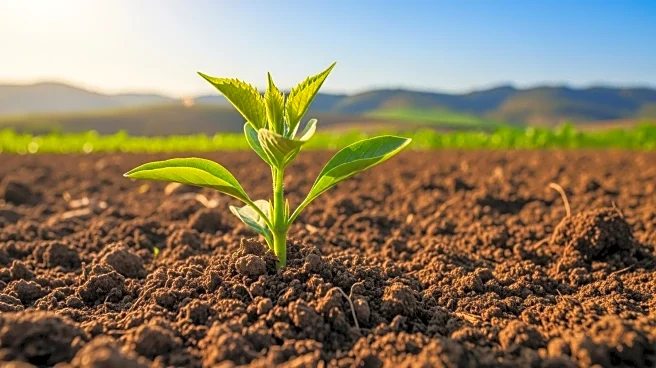What is the story about?
What's Happening?
Regenerative agriculture is emerging as a transformative solution to address climate change, soil degradation, and biodiversity loss. This holistic approach to farming aims to restore soil health, enhance biodiversity, and improve water cycles through methods like cover cropping, composting, and rotational grazing. The global regenerative agriculture market is projected to grow from USD 8.7 billion in 2025 to USD 23.1 billion by 2032, driven by evolving environmental policies, corporate climate goals, and increasing consumer demand for responsibly sourced food.
Why It's Important?
Regenerative agriculture offers a sustainable alternative to conventional farming, providing economic resilience to farmers while supporting climate-smart strategies. By improving soil carbon sequestration and reducing chemical inputs, these practices contribute to net-zero goals and help reverse soil degradation, ensuring long-term yield stability. The growing consumer awareness and demand for ethically and environmentally sound products further boost the market, with regenerative certification labels aiding informed choices.
What's Next?
The market faces challenges such as knowledge and training gaps, initial transition costs, and measurement complexities. However, advancements in agri-tech, digital monitoring, and public-private partnerships are helping overcome these hurdles. Large food corporations and governments are investing in regenerative supply chains and incentivizing sustainable farming, accelerating market adoption. As regenerative agriculture continues to expand, it is expected to play a crucial role in future-proofing food systems.
Beyond the Headlines
Regenerative agriculture not only mitigates climate change but also enhances food security by making land more fertile and productive. It offers economic benefits to farmers through reduced input costs, increased soil fertility, and access to premium markets. The approach also supports biodiversity and water cycles, contributing to healthier ecosystems. As the market grows, it is likely to drive innovation and operational excellence in the agricultural sector.














